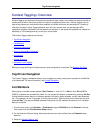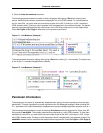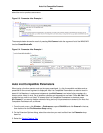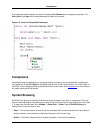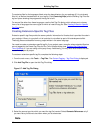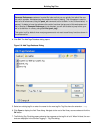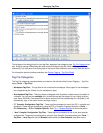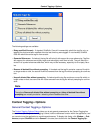
To create tag files for the languages listed, enter the base directory for your package (if it is not already
filled in), as well as the destination of your tag file. Click Create tag file(s) and the Building Tag Files dia-
log box opens showing the progress as the tag file is built.
For source files other than these languages, use the Add Tag File dialog, which allows you to choose
from a list of languages the source type for which to insert the tag file. See Creating Extension-Specific
Tag Files below.
Creating Extension-Specific Tag Files
Extension-specific tag files provide the same symbolic information for libraries that is provided for code in
your projects. A library is a pre-built unit of code that is not edited as part of this development effort.
These tag files are accessible from any project written in the same language.
You need to create an extension-specific tag file if your project uses a compiler whose standard libraries
are not tagged by the Create Tag Files for Run-Time Libraries dialog (see Creating Tag Files for Run-
Time Libraries) or if you are using a third-party library. Additionally, you may have local libraries that are
reused from project to project.
To create an extension-specific tag file, complete the following steps:
1. From the main menu, click Tools → Tag Files. The Context Tagging - Tag Files Dialog is displayed.
2. Click Add Tag File to open the Add Tag File dialog.
Figure 5.7. Add Tag File Dialog
3. Select the source type into which you want the tag file inserted. Select Generate References only if
you want library functions to be shown when you list references.
Note
Building Tag Files
68





